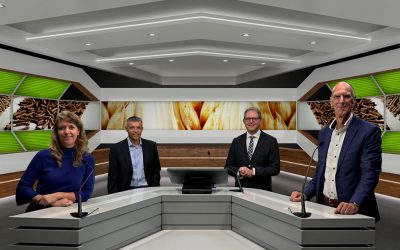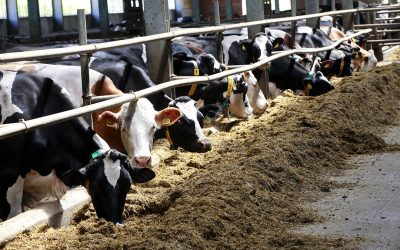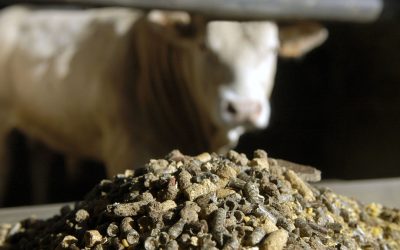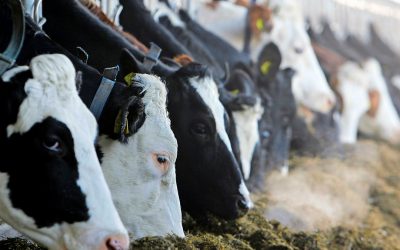Innovative initiatives seeks business inputs
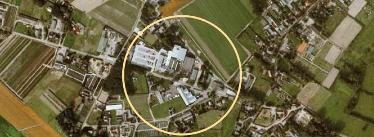
A group of Dutch innovators have joined forces to investigate the possibility of creating a so called ‘feed Design Lab’ for feed manufacturers to be able to quickly respond to changes in the market and create new forms of animal feed.
By Dick Ziggers
The animal feed industry in the Netherlands is facing an enormous challenge. Socially responsible animal feed, energy and environmental issues and a dynamic market demand innovative solutions. To be capable of quickly developing new types of feed there’s a key word: feed design. Regional Business Center De Oelderse Halte, Dinnissen Processing Technology, Imtech and University of Applied Sciences HAS Den Bosch have joined forces
to investigate the possibility of developing a Feed Design Lab (FDL). In this so-called living laboratory it should be possible to produce innovative animal feeds on a small-scale for pigs, poultry and cattle as well as for pets: in other words, a live pilot factory. In the FDL the industry would be able to carry out the following core experiments:
1. Design
Developing and designing new types of feed that match (new) market demands using new raw materials, residue flows from other sectors and innovative production technology. For example, feed based on brewer’s grains or various pellet designs.
2. Testing
The ability to test new and existing feed types/recipes for their properties when new technologies are applied. This testing should also apply to the effects of other process technology steps on existing recipes. In this way a form of reversed engineering of feed and pet food can be created. The aim is to be able to combine various technological process stages as working processes in a feed kitchen. For example milling, mixing, pressing, extruding, expanding, pasteurising (residue flows), vacuum coating, end-of-line mixing (for adding probiotics/prebiotics, flavourings or liquid algae), etc. The FDL should be set up in such a way that new machines and technology can be easily incorporated.
3. Measuring technology
In the FDL it must be possible to measure how feed types develop during production, using sensors and measuring technology, but also what the effect is of the chosen recipes on energy consumption and CO2 emissions. Combinations of sensors and intelligent control systems should lead to optimal production processes for both new and existing feed types and in new and existing feed plants. Other values must be added to the current aim of optimising the price of raw materials and feed components; for example, animal health, higher Omega-3 content, optimising vitamins/active substances, energy consumption during production, C02 emission, etc.
4. Educate
As well as testing, the FDL also has a facility which can be used as a training centre for employees of animal feed companies covering subjects such as process control, maintenance and using modern installations. It is also a base for knowledge development about animal feed for the benefit of educational institutions and the business community. For students and teachers at agricultural colleges specialising in animal and livestock husbandry and technology this will create a powerful, practical learning environment where knowledge, skill
and hands-on experience are united. Around the factory there is space for further development to create a Feed Design Campus.
Location
The South of the Netherlands is not a surprising choice for the location of the FDL. The heart of the Dutch intensive livestock farming sector is situated here, with a high concentration of animal feed manufacturers in the vicinity. The role played by high-tech companies in the animal feed industry necessitates an innovative approach in the region. The region also has testing facilities where the newly designed feeds can be tested in the laboratory and on a practical scale. This will lead to the development of knowledge and insight which can propel the region to a higher dimension, and stimulate regional companies towards further development.
Feasibility study
Regional Business Center De Oelderse Halte, Dinnissen Processing Technology, Imtech and University of Applied Sciences HAS Den Bosch have made a budget of € 25,000 available to HAS Knowledge Transfer to investigate the feasibility of the FDL. Feasible in two aspects; one from the perspective of; “Is there a need in the feed sector for such a development and will it be utilised?” and secondly “Can a business plan be developed for a cost-covering business case, and how?” The leading principle here is a set up where the founding fathers do not place any restrictive conditions on the further approach and the participants in future developments. The sole condition is a willingness to think in a culture of Open Innovation. Naturally new feed types, etc. will be developed under the terms of a secrecy agreement, whereby the knowledge gained remains with the user/principal.
HAS Knowledge Transfer will intensively target all stakeholders in the animal feed companies in order to conduct the feasibility study. To conclude the feasibility study, the results will be presented during a workshop for stakeholders and animal feed companies.
Companies interested in playing a role in this innovative project are invited to contact T. van Schaik (email: ScT@hasdb.nl or phone +31 73 692 3637)
Source: Feed Tech Magazine. Volume 13. No. 4




